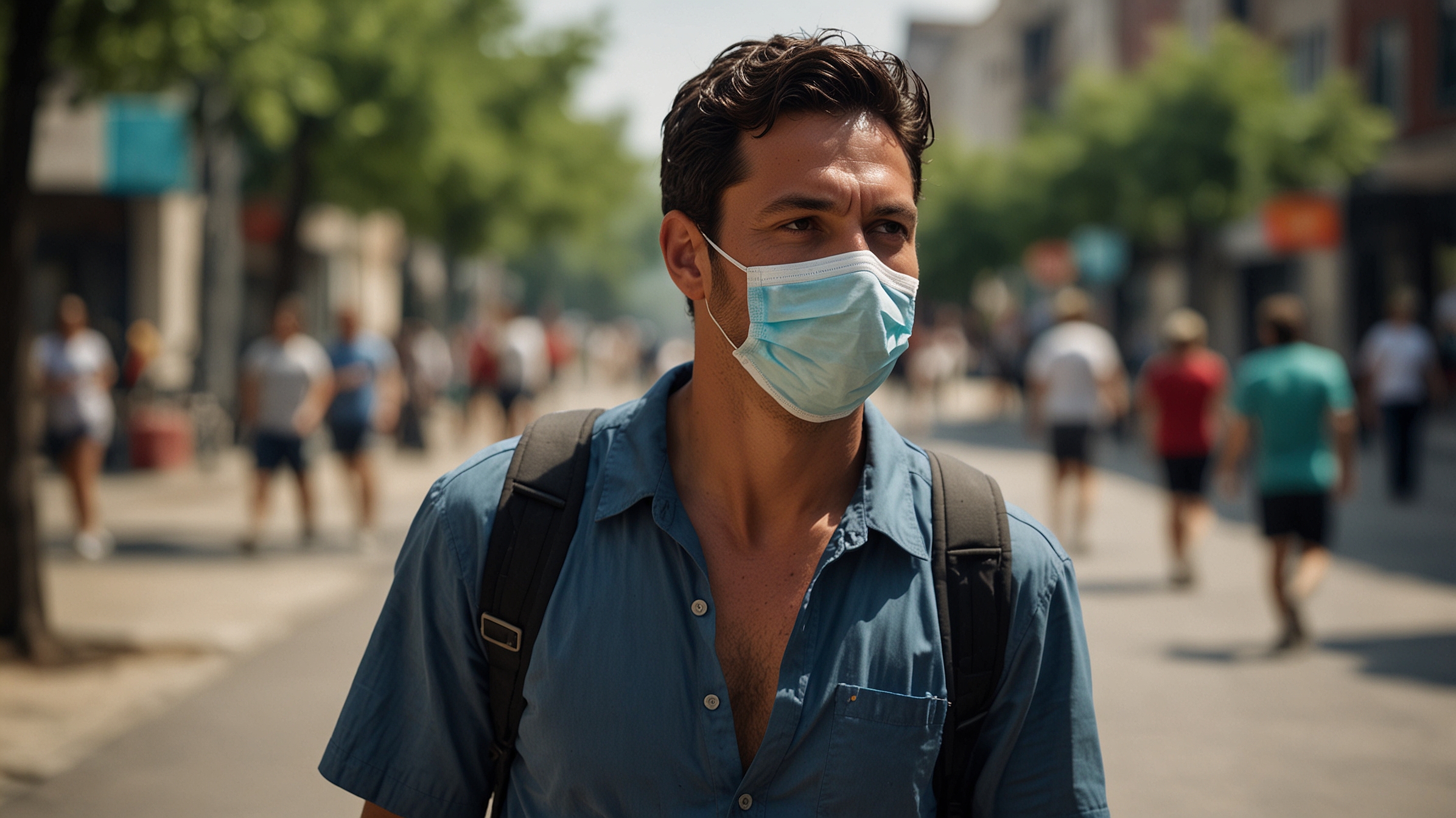In recent years, heat waves have become more frequent, more intense, and more dangerous. What was once an occasional summer discomfort is now a growing public health threat—and it’s directly linked to climate change. As global temperatures rise, our bodies are being pushed to their limits in ways many of us don’t fully understand.
This article explores how extreme heat affects the human body, why it’s becoming a year-round concern, and what you can do to protect yourself and your loved ones.
The Heat is Rising—and So Are the Health Risks
Heat waves are prolonged periods of excessively hot weather, often combined with high humidity. According to the World Meteorological Organization, the number of hot days has doubled in many regions since the 1980s. Climate change is a key driver, amplifying the frequency and severity of these events.
And it’s not just uncomfortable—it’s deadly. Heat is responsible for more weather-related deaths than hurricanes, floods, or cold. But many of its health effects aren’t immediately obvious. Heat stress accumulates slowly, and by the time your body sends a warning signal, it may already be overwhelmed.
Hydration: The Body’s First Line of Defense
One of the first systems to suffer during a heat wave is your hydration balance. As temperatures climb, your body tries to cool itself through sweating. But that process comes at a cost: the loss of fluids and electrolytes like sodium and potassium.
Signs of dehydration include:
- Headache
- Dizziness
- Dry mouth
- Dark yellow urine
- Fatigue
- Muscle cramps
Mild dehydration can make you feel foggy and lethargic. But severe dehydration can lead to heat exhaustion or even heat stroke, a medical emergency.
Tip: Don’t wait until you’re thirsty. Drink water consistently throughout the day, especially if you’re outside or active. Electrolyte drinks or water with a pinch of salt and a slice of fruit can help replenish lost minerals.
Sleep Disruption: Why Hot Nights Are Exhausting
You may have noticed that it’s harder to sleep when it’s hot—and there’s science behind that. The body naturally lowers its core temperature to initiate sleep. When nighttime temperatures remain high, this process is disrupted.
What heat does to your sleep:
- Reduces deep sleep and REM sleep
- Increases wakefulness during the night
- Delays sleep onset (it takes longer to fall asleep)
This sleep disruption isn’t just inconvenient. Over time, poor sleep weakens the immune system, impairs memory, and raises the risk of anxiety and depression.
Tip: Use fans or air conditioning if available. Take a cool shower before bed, wear light cotton clothing, and keep curtains closed during the day to reduce indoor heat.
Chronic Conditions: A Silent Aggravator
People with chronic illnesses are especially vulnerable to heat waves. That includes individuals with:
- Heart disease
- Diabetes
- Kidney disorders
- Respiratory conditions like asthma or COPD
High temperatures put extra strain on the cardiovascular system, forcing the heart to work harder to cool the body. In people with diabetes, dehydration can disrupt blood sugar control. For those with kidney issues, heat-related fluid loss can be dangerous.
In some cities, hospital admissions spike during extreme heat events, especially among older adults and those with pre-existing conditions.
Tip: If you or a loved one has a chronic illness, create a heat safety plan. That may include checking medications (some increase sensitivity to heat), having a cooling space ready, and checking in with a healthcare provider during heat waves.
Who’s Most at Risk?
While heat affects everyone, some groups are more vulnerable:
- Older adults: Aging reduces the body’s ability to regulate temperature.
- Infants and young children: Their thermoregulation is still developing.
- Outdoor workers: Construction, agriculture, and delivery workers are often exposed for long hours.
- Low-income households: Lack of access to cooling, shade, or clean water increases risk.
- Urban dwellers: Cities trap heat in what’s known as the “urban heat island” effect.
These populations need targeted outreach, community support, and, in many cases, better infrastructure.
Climate Change and Long-Term Health
Heat is just one piece of the climate-health puzzle. Rising temperatures are connected to worsening air quality (due to wildfires and pollution), longer allergy seasons, the spread of vector-borne diseases (like Lyme or West Nile virus), and more frequent natural disasters.
But the effects of chronic heat are especially insidious. They strain healthcare systems, disrupt productivity, and reduce overall quality of life—especially in underserved communities.
Tip: Advocate for green spaces, urban cooling solutions, and sustainable policies. Climate adaptation is a collective effort.
Staying Safe: Your Personal Heat Toolkit
As the planet warms, proactive self-care becomes essential. Here’s how to stay safe during a heat wave:
- Hydrate regularly
- Avoid outdoor activity during peak heat (11 AM–4 PM)
- Wear light, breathable clothing
- Use fans, cold compresses, or cool baths
- Check on neighbors, especially the elderly
- Know the signs of heat exhaustion: headache, dizziness, nausea, rapid pulse. If symptoms progress to confusion or unconsciousness, call emergency services immediately.
Final Thoughts: Heat Is a Health Issue
Climate change isn’t just about the planet—it’s about our bodies, our families, and our future. Heat waves are no longer rare events; they’re the new normal. By understanding how extreme heat impacts our health, we can take smart steps to protect ourselves.
Whether it’s stocking up on water, upgrading your fans, or simply checking in on a loved one, every small action counts. As the climate shifts, resilience starts at home—one cool drink, shaded walk, or good night’s sleep at a time.





